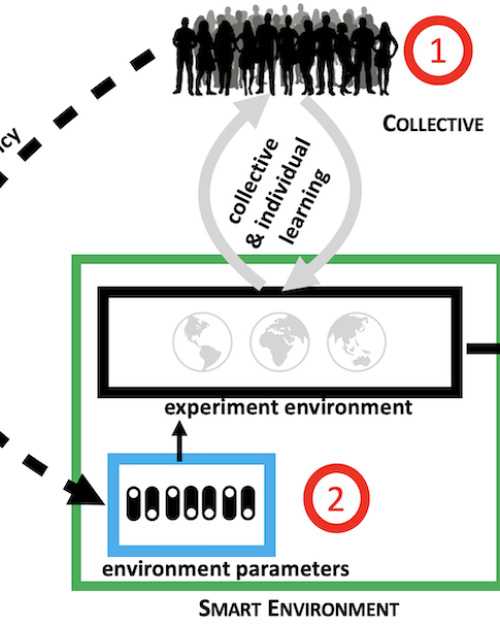Nori Jacoby, assistant professor of psychology in the College of Arts and Sciences, has been awarded an NSF fellowship for a project to develop algorithms to more effectively harness the intelligence of crowds by improving the quality of collective evaluations. The project promises to lead to more effective crowd-sourced feedback systems, which can empower communities to govern themselves and manage public spaces and services through bottom-up initiatives rather than top-down direction.
“Designing Smart Environments to Augment Collective Learning & Creativity,” is Jacoby’s collaboration with co-principal investigators at Princeton University, City University of New York, and the University of California, Davis. Jacoby's lab at Cornell will hire a postdoctoral researcher focused on collective creativity and collaborate with other groups on collective learning, intelligence and decision-making.
Many communities are already utilizing "smart" technological environments that adapt to meet specific goals, such as a learning platform that delivers different content to different students, Jacoby said.
“This work asks how to optimize such technological augmentations to collective intelligence and goes a step further, by investigating how to give groups, themselves, agency over the optimization process,” he said.
The researchers will develop large-scale online experiments, involving hundreds of participants, and computational models aimed at understanding collective learning and its relation to self-governance. The resulting data will give insight into technological mechanisms that support small-scale democratic decision-making, advancing science at the intersection of sociology, cognitive science, and computer science and laying groundwork for future workforce tools that optimize technological environments.




